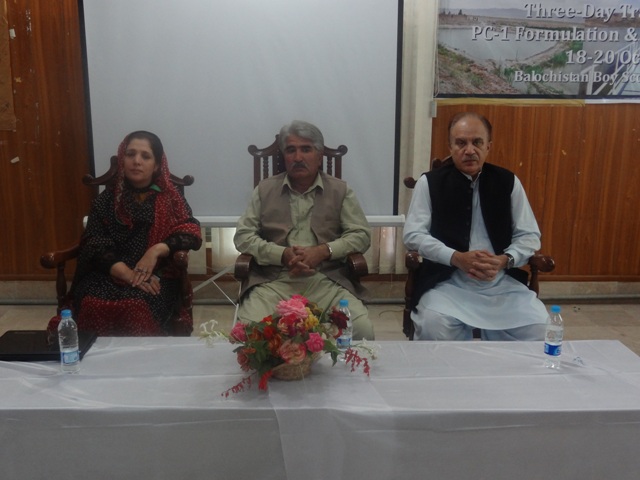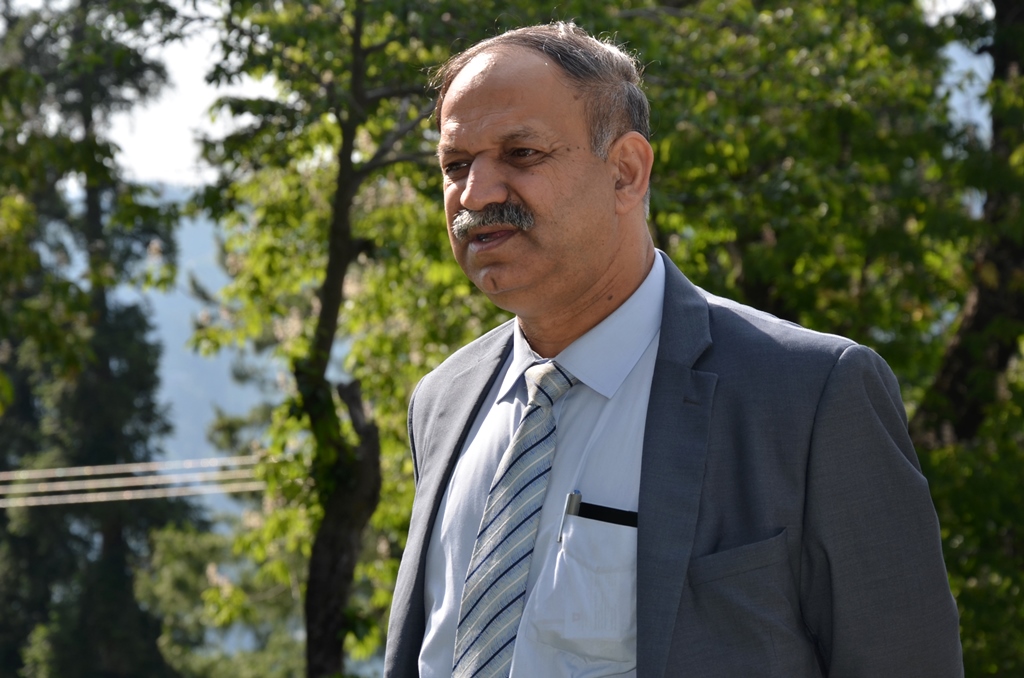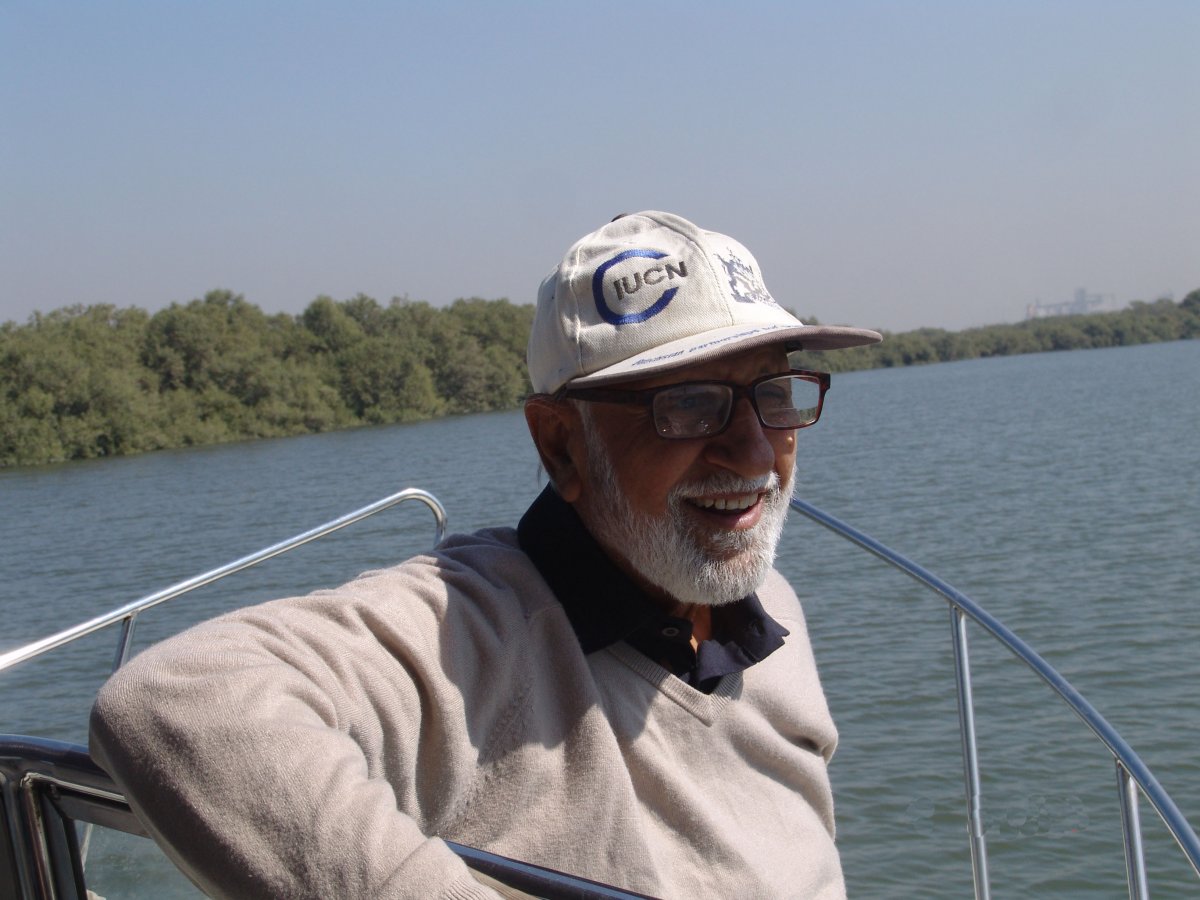3-Day Training on Formulation and Development Project Proposal Development
A 3-Day training workshop was organized by IUCN Pakistan under its Balochistan Partnership for Sustainable Development (BPSD) programme between 18-20th October 2011 at the Boy Scouts Head Quarter in Quetta.

Photo: IUCN Pakistan
To further enhance the capacity of the stakeholders, Balochistan Partnership for Sustainable Development (BPSD) is implementing several training programmes for the government and civil society organizations for better understanding of environmental issues prevalent in the province.
The overall objective of the training workshop was to familiarize the districts and provincial governmental departments with the revised and amended format of the PC-1. PC-1 is one of the basic documents
to plan and implement any development project at the governmental level. There was a strong need for expertise and training on PC-1 since most of the staff members lack the ability to formulate a standard PC-1 that can be finalized and approved by the government for funding.
The participants of the workshop hailed from diverse districts of Balochistan; Mastung, Qilla Saifullah, Pishin and Quetta. The objective of the workshop was to familiarize the representatives of the Government of Balochistan Line Departments and representatives the new and emerging concepts of Project Development and basic approach of the project formation on amended/revised PC-1 format used by the Planning Commission of Pakistan and the provincial line departments and district administration.
Expert trainers, Ms.Robella and Mr.Waqar Ahmad delivered sessions on gender concepts, gender analysis and sensitization as well as on consistency in PCM and PC-1. They also shared detailed information on Project Cycle Management, project identification and preparation, project appraisal and elaborated on the techniques of project proposal development. They also exchanged information on issues of project management before preparing the PC-1 according to the new and amended Project Format. Mr.Waqar Ahmad also briefed the participants on conceptualizing and valuing Logical Framework Analysis through learning by doing techniques.
Mr.Miran jan Kakar secretary Planning and Development Department shared his views and appreciated the work done under IUCN Balochistan programme at the district level. He shared that we can see tangible work in those districts where IUCN is working.
Mr. Zabardast Khan Bangash, Manager; Balochistan Programme of IUCN Pakistan thanked the trainers and PM&E officer for their efforts in making this event a great success. He also extended his gratitude to the training workshop participants for their sincere effort,, attention and enthusiastic interactive sessions, which have contributed greatly towards the success of the workshop. Mr.Meeran jan kakar, Ms. Robeela and Mr. Zabardast Khan Bangash awarded the certificates to the successful participants.
For more information or to set up interviews, please contact:
Zabardast Khan Bangash, Manager IUCN Balochistan Programme,
IUCN (International Union for Conservation of Nature)
Quetta Phone: +92 8128240450-2, Fax: +92 812820706
Email: zabardast.bangash@iucn.org
About IUCN
The world’s oldest and largest global environment network, IUCN, International Union for Conservation of Nature, envisions a just world that values and conserves nature. IUCN helps the world find pragmatic solutions to our most pressing environment and developmental challenges. It supports scientific research, manages field projects all over the world and brings governments, non-government organizations, United Nations agencies, companies and local communities together to develop and implement policy, laws and best practice. The Union’s headquarters are located in Gland, Switzerland.
IUCN Pakistan is part of the IUCN’s Asia Regional Programme based in Bangkok, Thailand. Established in 1985 to assist in the preparation of Pakistan’s National Conservation Strategy, IUCN Pakistan has grown to become the largest country programme of IUCN. Together with its partners and members, it is implementing several conservation initiatives across the country through institutional strengthening, policy advocacy and field work. Currently there are 27 active members of IUCN in Pakistan, including the Government of Pakistan as the state member, six government agencies and 20 NGOs. Over 100 volunteers from Pakistan work in IUCN’s six specialised commissions.
www.iucn.org


